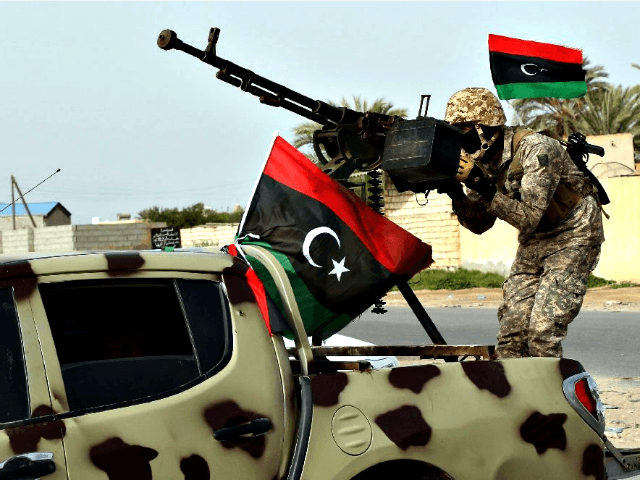One of the most painful lessons we learned from the Iraq war is that nation-building in the Middle East rarely works out as planned.
The United States, at the behest of neoconservatives, spent years of effort and trillions of dollars trying to construct a single set of civic institutions in Iraq, only to watch the army disintegrate without a fight before the Islamic State and the parliament slip towards the brink of collapse.
But just because the liberal interventionists couldn’t conjure up a new Iraqi government from scratch doesn’t mean it’s swearing off nation-building entirely. They’re back, and their next target is Libya, currently awash in chaos thanks to the deposal of Moammar Gaddafi, with two rival parliaments, fractious militias in between, and a stretch of the coast under Islamic State control. Into this has stepped the Government of National Accord (GNA), an unelected and fledgling body negotiated into existence with help from a West that’s hoping to unite Libya once again.
Meaning: get ready to give nation-building the old college try once again. And problems are already cropping up.
Start with the fact that the GNA didn’t exactly get off to a promising start. Facing Islamist threats and crossed arms from the existing parliament in Tripoli, the new government’s presidential council was forced to sail into the city after striking a number of deals with militias to secure its safety (prior to that, it was based in neighboring Tunisia). To this day, the GNA operates out of a heavily secured naval base rather than Tripoli’s government buildings, an indication of just how controversial it remains.
At the head of the GNA is Fayez Sarraj, a housing bureaucrat during the Gaddafi era and a Libyan elite from a prominent family. He talks a good game about national unity and ruling by consensus, but he also hasn’t been able to dispel suspicions that the GNA is alien—a Western plot by way of Tunis—and unrepresentative. That might be too strident a judgment, but it contains a germ of truth: not a single Libyan has cast a vote for the GNA’s presidential council.
“The real players, the real doers on the ground starting with militia leaders, political leaders, and tribal leaders, were not invited,” a former Libyan prime minister told CNN last week. “We had one government then we had two governments, now we’ve ended up with three governments.”
One of the two remaining governments, the House of Representatives operating in the east out of Tobruk, has refused to endorse the GNA. Tobruk has a robust military led by the iconic General Khalifa Haftar, that’s done its own work rooting out ISIS and al-Qaeda in Benghazi. And in a nose-thumb to Tripoli, Tobruk recently began issuing bank notes that are produced in Russia as currency. There’s little reason for it to accept western authority anytime soon, and its geographical separation—Tobruk is 780 miles from Tripoli—places it outside the reach of the nascent GNA, at least for now.
The GNA has tried to compensate by aligning itself with several of the country’s factions, including the powerful Libya Dawn militias and fighters from Misrata, in order to boost its military might. This has set up something like a second Race to Berlin, as forces from both east and west rush towards Sirte, ISIS’s self-styled capital in Libya, to kick the Islamic State out. Sirte will probably fall and the GNA will get some deserved plaudits when it does, but the real issue is what the militias will do after that, deprived of a common enemy with plenty of quarrels to reopen.
The problem with our latest nation-building project is that, as with Iraq, Libya is an artificial nation. Once a disorderly kingdom divided into three autonomous provinces and a labyrinth of tribes, it was united by the Gaddafi regime whose brutality ensured that it became a cohesive state. But Gaddafi is gone now, that glue is dissolved, and the country has fractured accordingly—the labyrinth of ideologies, loyalties, and enmities at work in Libya today is truly remarkable.
Out of this discord, the West hopes to bring harmony. It hopes to bring it with a government that was formed in another country and shipped across the sea. By the way, one of the governing principles in the GNA’s charter is that “Islamic Sharia is the source of all legislation, and that all that contradict it shall be deemed null and void.” Perhaps now is a good time for us to get out of the nation-building business?
Matt Purple is a fellow at Defense Priorities and deputy editor at Rare Politics.

COMMENTS
Please let us know if you're having issues with commenting.